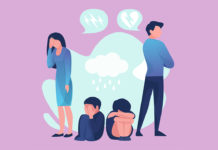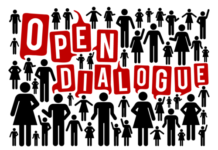The President’s Fitness: Can Professionals Help Decide?
For psychiatrists, psychologists, social workers, and other therapists to claim that they are essential for warning people that Trump is dangerous is to claim special expertise and insight to which they are not entitled, and it simultaneously demeans the judgment of nonprofessionals and helps strengthen the power of their guilds.
“Be Kind to Yourself… For Us!”
Ann: "I’ve fallen in love! With my group! And they’re in love with me!" Hugh: "The group and you have an important relationship that you’re creating together week after week. This includes breaking down the authoritarian boundaries that keep people in their “places” so that they can’t grow."
Awakening: Shedding the “Mentally Ill” Identity and Reclaiming My Life
If I had not crumbled, brought to my knees beneath the weight of the misdiagnoses and sordid side-effects of the medications, I would not have had the opportunity to rise up and gain such a strong sense of self—something for which many spend their whole life searching.
Eulogy for Abraham Leighton McNeill
A friend said to me recently, "Oh, he suffered such a lot. That’s over for him." I know their words were intended to comfort me over my son’s suicide. Our fine, excellent son, Abraham, had committed suicide a month before Christmas 2019. Nevertheless, I bridled inwardly at the suggestion, not wanting to remember Abraham as merely the sum of his sufferings—he was so much more than that.
Jordan B. Peterson’s Support of Corporal Punishment for Children: A Critique
In his book 12 Rules for Life, supposedly based on "cutting-edge research," Jordan Peterson attempts to justify the hitting of children as a form of discipline. But Peterson does so without citing a single study to support his view. In fact, this entire section of the book is bereft of any reference to any research supporting the effectiveness of corporal punishment.
Mad in America and Activism
The question that is presently unanswerable is whether this crisis will stimulate progress or regression. I choose to believe that it is an opportunity but that we must fight to make it happen. My dream: To build compassionate communities where people who look, act, or think differently are supported in ways for them to develop their innate potential.
Window of Opportunity: Reflections on “Dialogue in a Time of Crisis”
We will continue exploring the challenges and learnings of dialogues in times of crisis on the first and third Fridays of the month, at 12:00 pm EST (5:00 BST). This Friday, May 1, Jimmy Ciliberto, Charmaine Harris, Jasmin Ishaq, Ramune Mazaliauskiene, and Alita and Fletcher Taylor will discuss what they are learning in their respective systems.
Gabapentin Horror
After suffering PTSD in the late 1980s, I reluctantly accepted antidepressants. In time, I had resolved the trauma, but when I tried to stop the antidepressants (Prozac, and later Zoloft), I assumed my desperate feelings and “return” of depression were an indication I had an imbalance and needed those drugs. I didn’t understand I was experiencing withdrawal. (I was never told that for most people, psychiatric medications need to be tapered.)
Lucky to Be Alive: The Suicide Attempt I Don’t Remember
Imagine for a moment that you had a sleepwalking episode in which you tried to commit suicide. When you awaken you are in a hospital bed, having no idea where or even who you are nor how you got there. Then someone who loves you tells you that you tried to take your own life.
Not Stigma, Privacy: Why I Write Under a Pseudonym
If I disclose my situation, then professionally, the attributional association of “the therapist with schizophrenia“ will necessarily and inevitably follow. But this is not who I am. Rather, I am a therapist with a private medical issue and I prefer to maintain its confidentiality—no further justification needed.
Sam Himelstein – The Impact of COVID-19 and Social Distancing on Adolescents
Psychologist Sam Himelstein, PhD, talks about the impact of the coronavirus crisis and “social distancing” policies on adolescents, taking a look at the unique needs of teenagers and young adults and the challenges they may present for parents, caregivers, and other family members.
Allen Frances: Still Spinning the Story
Allen Frances' latest article: There are problems in the psychiatric field, but none of these problems can be blamed on psychiatry. But the spurious promotion of psychiatric "diagnoses" as real illnesses, and the routine prescribing of chemical and electrical "cures" were and are psychiatric inventions.
Is Your Brain Adequately Nourished to Cope With COVID-19 Stress?
Mental health resilience is a function of a well-nourished brain. Even in our developed, western society, our brains are only marginally nourished, contributing to the epidemic of mental illness visible even before COVID-19 arrived on the scene.
Antidepressant Misinformation Promoted on Popular Websites
A new study indicates that popular online resources do not accurately present the scientific evidence on the risks and benefits of antidepressants.
Too Good to Be True: How TMS Damaged My Brain
TMS not only has not improved my mental health, but also has robbed me of some of the most important things in life. There has been little to no research on or awareness around the negative side effects that TMS can inflict. This must change.
There’s Something Spreading Faster Than COVID-19, and It’s Not Fear. It’s Toxic Positivity
This “advice” to “remain positive” is spreading faster than COVID-19 and even faster than fear. The only people that benefit from that are the people already benefiting from predatory systems of capitalism and psychiatry that were in place long before COVID-19.
Lockdown Reading to End DSM Psychiatry?
A review of the "Adult Children of Emotionally Immature Parents" books by Lindsay Gibson. Even though adults experience emotional loneliness, such loneliness can also start in childhood when we might have felt (and I would submit, actually were) unseen emotionally by self-preoccupied parents.
Just Like Viruses, Emotions are Contagious
Now is not the time for family members to be nursing old hurts or believe the all-too-common delusion we all periodically fall prey to—you can get, without giving, when it comes to goodwill. Gestures of decency, gratitude and appreciation will need to prevail.
Exploring Dialogical Responses in a Time of Crisis: Are We Living in the...
Mad in America is proud to introduce a new venture: a web series of virtual “Town Hall” conversations, “Exploring Dialogical Responses in a Time of Crisis,” on Fridays at noon, eastern standard time. The first live town hall will be held on Friday, April 17.
A Bridge Over Troubled Water: What’s This About Being a Hopeless Reformer?
My role within the Mad in America community has been to provide a perspective largely conditioned by six years as a state mental health commissioner. I believe that, realistically speaking, psychiatry isn't going away. Cultures in everything from state hospitals, to community-based inpatient programs, to crisis services, to outpatient settings don't change quickly.
Exploring How Muslim Therapists Work With Jinn Possession
How do Western-trained Muslim therapists work with clients that believe they are possessed? How do they balance their belief in Jinn with their knowledge of psychological/sociological theory? How do they formulate and work with a client in the British context?
Blurring the Line Between “Us” and “Them”
Most, if not all, mental health providers, will face dealing with major ethical issues. In their quest to reach as many consumers as possible, to streamline the process, to be as efficient as possible during this pandemic, was the therapeutic process truly helpful? Were key components of what “should” happen between both parties still prioritized?
Antipsychotic Trials Show Increasing Placebo Response and Declining Drug Response
A new review of antipsychotic trials conducted over the last 24 years finds that the placebo response rate is steadily increasing, and drug response is decreasing.
What Do Psychiatrists Treat if Not the Soul (i.e., the Psyche)?
The words psychiatrist and psychiatry, along with their counterparts in other languages, have come to mean something that is not reflected in their Greek origins. Would you allow a psychiatrist to treat an illness of the soul (in Greek, ψυχή [psychí]) if he or she couldn’t explain what part of the human person psychiatrists treat?
Isolated by the Coronavirus? Welcome to My World
There is such shame and social punishment around experiencing extreme states of mind and being given a psychiatric label that is itself profoundly isolating. This is a kind of isolation that people who are merely practicing social distancing will probably never know.

































